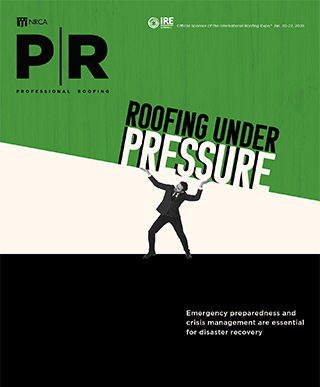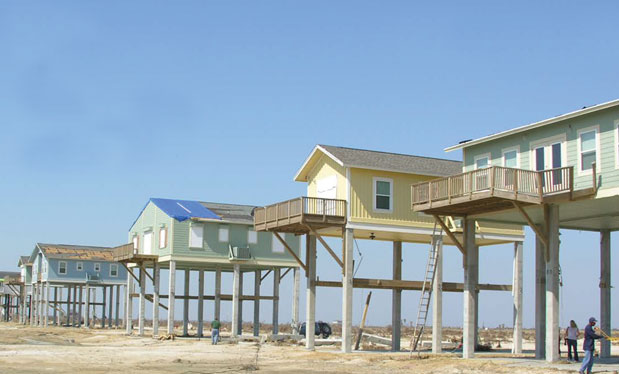OSHA holds informal proposal hearing
The Occupational Safety and Health Administration (OSHA) held an informal public hearing May 19 to discuss OSHA's proposed rule to extend the compliance date for crane operator certification and the existing phase-in requirement for employers to ensure their operators are qualified to operate equipment.
The hearing's purpose was to gather additional information related to whether OSHA should extend the requirement by three years. On Feb. 10, OSHA issued a Notice of Proposed Rulemaking to extend the deadline for the operator certification and the existing employer duties to Nov. 10, 2017. Comments were accepted until March 12. The agency received 60 comments, one of which requested a hearing.
For more information about the informal hearing and the proposed rule, visit www.osha.gov.
E-cigarettes pose health and safety risks
The U.S. Food and Drug Administration (FDA) has reported complaints of injuries linked to e-cigarettes have jumped during the past year. Between March 2013 and March 2014, more than 50 complaints were filed with the FDA, on par with the combined number reported during the past five years. The complaints include burns, nicotine toxicity, difficulty breathing, headaches, cough, dizziness, sore throat, nose bleeds, chest pain or other cardiovascular problems, and allergic reactions such as itchiness and lip swelling.
General conclusions cannot be drawn from individual case reports, but there is an inconsistent quality in the devices that could pose potential safety risks. E-cigarettes contain battery-powered cartridges filled with liquid nicotine that, when heated, create an inhalable mist. For roofing workers, the battery in an e-cigarette can pose a fire hazard with potential heat or explosion issues. This is significant for roofing workers using solvents, flammable coatings and adhesives or in environments where dust or vapors in the air could combust.
For the first time, the FDA is poised to regulate e-cigarettes and other vaping devices and tobacco products. On April 24, the FDA proposed new rules to extend its regulatory authority from cigarettes to e-cigarettes, pipe tobacco and cigars. The new regulations would ban the sale of these tobacco products to minors, require photo identification for purchase, and require producers of cigars and e-cigarettes to register with the FDA; provide the agency with detailed accounts of their products' ingredients; disclose their manufacturing processes and scientific data; and be subject to FDA inspections.
For more information about the risks of e-cigarettes and the potential FDA regulations, visit www.fda.gov.
Tecta America names new CEO
Tecta America Corp., Rosemont, Ill., has named Mark Santacrose its new chief executive officer (CEO). Santacrose previously had been Tecta America's chief executive officer from March 2000 to December 2011. Since then, he has continued to serve on the company's board of directors. Santacrose will oversee the strategic direction of the company and its member companies.
"We are thrilled to welcome back Mark as Tecta's new CEO and are completely confident that his leadership, guidance and vision will further strengthen Tecta's reputation as the premier commercial roofing company in the U.S.," says Mark Gaulin, Tecta America's chief operating officer. "Mark's previous experience and knowledge of Tecta's values and culture coupled with his leadership skills make Mark the undeniable best fit for this position."
Santacrose was managing director of the Chaifetz Group, Chicago, beginning in January 2012. Before he joined Tecta America in 2000, he was chief executive officer and president of Entrade, Northfield, Ill., from 1998 to 2001 and previously had been president of Bagcraft Packaging, Chicago.
PPG receives DOE award
PPG Industries Inc., Pittsburgh, has received a $224,000 award from the Department of Energy (DOE) to develop a new class of dark-colored pigments for cool metal roof and façade coatings that incorporate near-infrared (NIR) fluorescence and reflectance to improve energy performance. The award is part of a $530,000 project that includes a $250,000 award to Lawrence Berkeley National Laboratory (LBNL), Berkeley, Calif., to partner with PPG Industries on the research with $56,000 in cost-sharing by PPG Industries. The project's goal is to develop a more advanced class of dark-colored pigments to convert a portion of absorbed visible light energy into NIR energy radiated away from buildings.
"PPG and [LBNL] are focused on fundamentally understanding these pigments and how to incorporate them into coatings so they can provide the greatest energy benefit," says Bill Retsch, PPG Industries associate director of research, industrial coatings. "We appreciate the support we have received from the DOE to investigate truly cutting-edge energy-efficient concepts."
The new pigment technology would be a significant advancement over current cool-coating pigments, potentially achieving effective solar reflectance values of 0.5 to 0.7 compared with standard pigment values of 0.1 to 0.3 and could help save up to $1.3 billion annually in related energy costs for residential applications in warm U.S. regions.
To learn more about the award and project, visit www.ppgindustrialcoatings.com.



